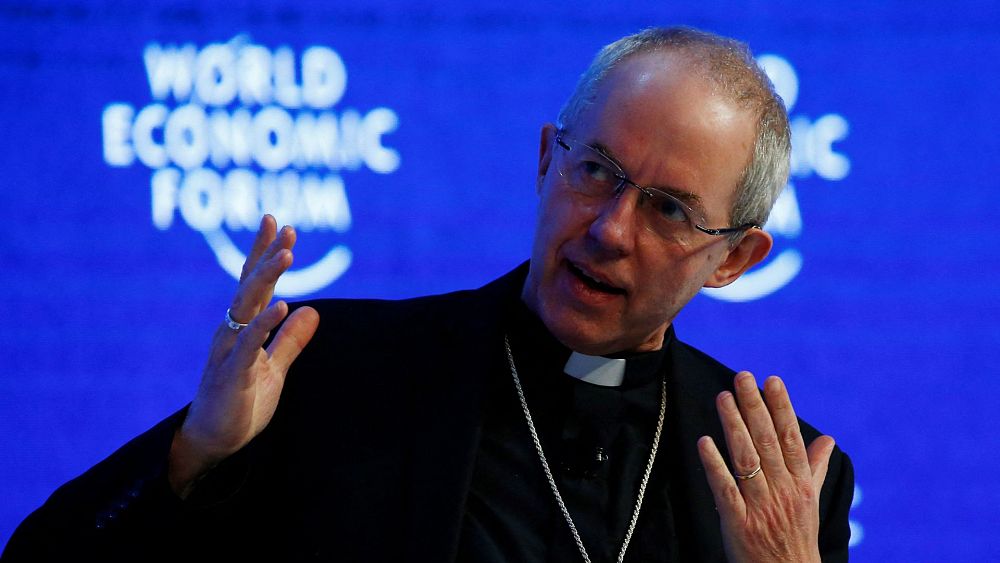
Church of England has ‘followed science and faith’ to divest from fossil fuels, slamming oil and gas companies for failing on climate.
The church’s Pensions Board will divest its holding in Shell over what it said were insufficient plans to align its strategy to the goal of limiting global warming to 1.5 degrees Celsius.
The Board has around 1.35 million pounds (€1.58 million) invested in Shell of its total 3.2 billion pounds in investments.
The Church of England’s separate 10.3 billion pound Church Commissioners fund will also divest from all remaining oil and gas companies in its portfolio, including Shell, BP, Equinor and TotalEnergies.
“The Church will follow not just the science, but our faith – both of which call us to work for climate justice,” Justin Welby, the Archbishop of Canterbury, said in a statement.
Why is the Church of England divesting from fossil fuels?
Scientists say the world needs to cut greenhouse gas emissions by about 43 per cent from 2019 levels by 2030 to meet the Paris Agreement’s goal of keeping warming to less than 2 degrees Celsius above pre-industrial levels.
To do so, we must slash oil and gas production.
But fossil fuel polluters are doubling down on carbon bomb projects. Shell’s new CEO Wael Sawan recently abandoned plans to cut oil production each year for the rest of the decade.
Earlier this year, BP also scaled back its plans to cut oil and gas production this decade.
The Church of England’s decision to divest comes as progress towards Paris goals stalls.
“The climate crisis threatens the planet we live on, and people around the world who Jesus Christ calls us to love as our neighbours,” archbishop Welby said.
“It is our duty to protect God’s creation, and energy companies have a special responsibility to help us achieve the just transition to the low carbon economy we need.”
The Pensions Board said in its statement it would no longer prioritise engagement with the oil and gas sector on climate change and would instead refocus its efforts on reshaping the demand for oil and gas from sectors such as the auto industry.
Greenpeace UK said that the Church had tired of changing these companies “from within.”
“This should be a moment of moral reckoning for other investors and for our government,” said Charlie Kronick, an oil finance adviser to Greenpeace UK.
Will Shell reduce its carbon emissions?
Shell aims to reduce carbon emissions to net zero by 2050, but has so far rejected calls to set 2030 goals to reduce absolute emissions.
A Shell spokesperson said the Church funds’ decisions were “disappointing, but not surprising”, adding Shell believed it was Paris-aligned.
“At the same time, we are clearly focused on capital discipline, enhanced performance and delivering shareholder value,” the Shell spokesperson said.
This year, the Board voted against Shell’s chair and directors over climate concerns and in favour of an activist shareholder resolution asking Shell to set Paris-aligned emissions targets for 2030.